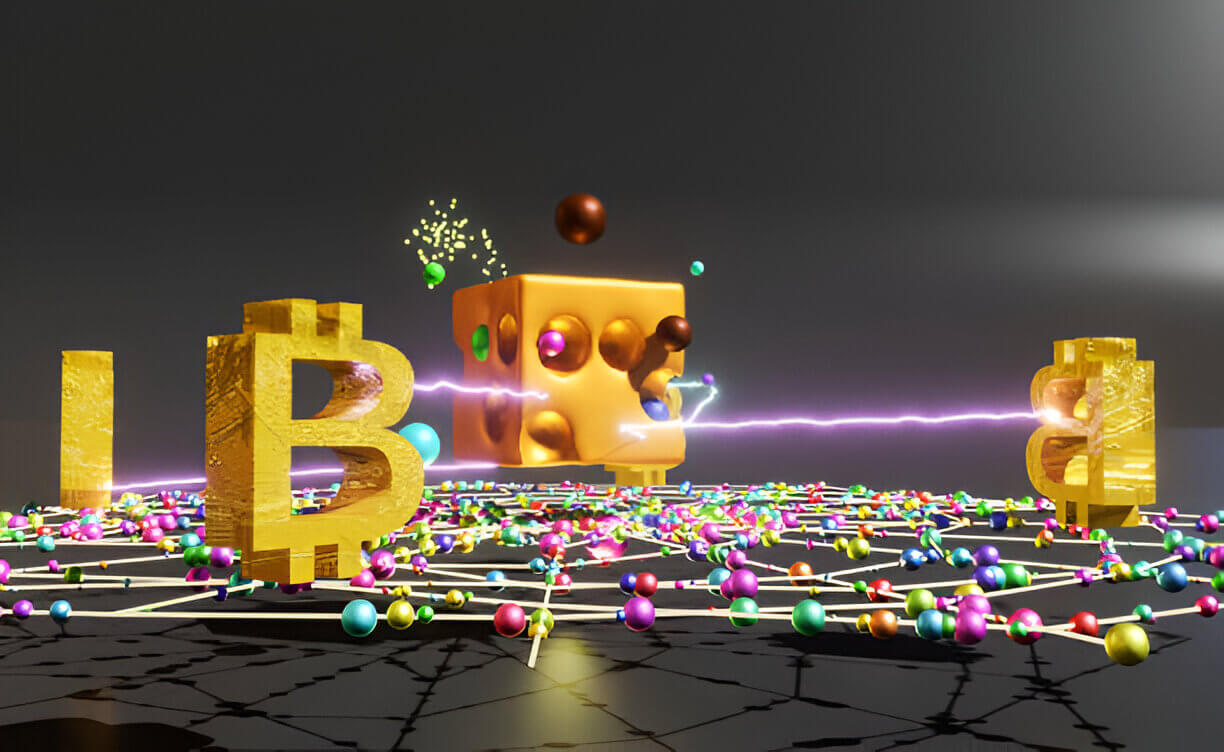In a dusty market in Lahore, nestled between a spice vendor and a mobile repair stall, something unexpected happened. A man sold a cup of chai—and got paid in Bitcoin. Not just any Bitcoin transaction either. It went through the Lightning Network. Instant, cheap, and irreversible. No banks. No middlemen. Just a QR code, a smartphone, and one merchant who decided he was done with payment delays, high fees, and paperwork. This is the real story of how one Pakistani merchant became an unlikely pioneer in Lightning Network adoption.
The Beginning: A Shop, a Problem, and a Curiosity
Muhammad Ali (no, not the boxer) runs a small electronics kiosk in Lahore’s Anarkali Bazaar. He’s been there since 2010, dealing mostly in imported chargers, budget headphones, and fixing burnt phone boards. Business was steady. But cash payments were a headache. No change? Lose a sale. Bank transfer? Takes hours or even days. Credit cards? Don’t even ask. Between transaction fees and delays, he was losing time, customers, and money. Then in early 2024, one of his regulars—an expat with too much time on his hands—asked him, “Ever thought of accepting Bitcoin?”
Wait, What’s the Lightning Network?
To understand how this clicked for Ali, you need to know a little about the Lightning Network. Bitcoin, by itself, isn’t fast. It’s secure and decentralized, sure. But speed? Not its strong suit. That’s where Lightning comes in. It’s a second-layer protocol that lets users send BTC almost instantly, with virtually no fees. Think Venmo, but for Bitcoin—and without a company owning the rails. When Ali heard about it, his first question was, “Can I get paid without waiting hours?” The answer was yes. That was enough to keep him listening.
The Setup: Two Phones and a Tutorial
Ali didn’t have a tech background, but he had WhatsApp—and that’s how he got the guide. The expat sent him a YouTube link and a 3-minute voice note explaining how to download the Phoenix Wallet. No hardware needed. Just a basic Android phone and an internet connection. Within 15 minutes, Ali had a Lightning wallet, a seed phrase scribbled onto a piece of scrap paper, and his first-ever invoice. The next customer paid him 500 PKR worth of sats. The smile on his face? You couldn’t miss it. Instant payment. Zero fee. No questions asked.
Early Challenges: The Fear Was Real
It wasn’t all smooth sailing. At first, Ali faced a lot of skepticism—from friends, family, and especially other shopkeepers. “Bitcoin? Isn’t that banned?” “What if your phone dies?” “What if someone steals your sats?” Fair questions. So Ali got smart. He backed up his seed offline, used two phones (one hot, one cold), and started small. He didn’t go all in. Instead, he offered Lightning as an option. Customers could still pay cash, but if they had BTC, they were welcome to try. And slowly, a few did.
The Turning Point: A YouTuber Walks In
Three months in, a Pakistani crypto YouTuber happened to be walking through Anarkali and noticed the “BTC Accepted Here” sticker on Ali’s booth. Within a week, a video went viral. “Merchant in Lahore Accepts Bitcoin on Lightning Network—No Banks, No Problem.” Ali woke up to 100+ new followers, a few donations in sats, and a request to do a podcast interview. Suddenly, his tiny stall became the unofficial Bitcoin booth of Lahore.
Not Just a Gimmick
Here’s where it gets real. This wasn’t just a marketing stunt. Over the next few months, Ali processed over 300 Lightning transactions. Many from tourists, some were locals who’d seen the video, and even a couple were from other merchants testing the waters. The average transaction? Less than 1000 PKR. But it added up. He also found that Bitcoiners were more likely to tip, round up, or even chat about future collaborations. One traveler gave him a $10 tip in sats just for using Lightning. That never happened with JazzCash.
The Tech Behind It
Ali kept it simple. He used the Phoenix Wallet, which auto-creates invoices and handles liquidity in the background. No need to run a Lightning node or understand channel rebalancing. His only rule: always keep less than 10,000 PKR in the hot wallet. Everything else gets swept to a cold wallet once a week. For customers, it was even easier. Scan, confirm, done. Some used Muun. Others used the Wallet of Satoshi. A few even had Strike. As long as it used Lightning, it worked.
The Ripple Effect
By late 2024, two other merchants in Anarkali had started experimenting with Lightning. One ran a small tea shop, the other sold phone cases. Both heard about Ali and figured, “Why not?” There wasn’t some big crypto movement or NGO program. Just word of mouth, simple onboarding, and a promise: you’ll get paid instantly. That was enough. Now in 2025, there’s even talk of setting up a local Lightning meetup in Lahore—hosted in a chai café, naturally.
Government? Silent So Far
Here’s the part that surprised me most. Nobody came knocking. No regulator. No tax officer. No police. In Pakistan, Bitcoin is technically in a gray zone—it’s not banned, but it’s not exactly endorsed either. Yet, in the physical world, the government has bigger fish to fry. As long as Ali wasn’t laundering millions or scamming anyone, nobody seemed to care. He still pays his taxes the normal way. The Lightning income? For now, it’s more like pocket money. But it shows what’s possible.
Why It Matters
This story isn’t about one guy going viral on YouTube. It’s about Bitcoin working as a real payment tool in a place most people would never expect. No VC funding. No Silicon Valley app. Just a small merchant who found value in instant, uncensorable money. The Lightning Network gave him a tool. And he used it—not because it was trendy, but because it solved a problem. Fast, cheap payments that don’t rely on banks.
What’s Next for Ali?
Ali’s planning to expand. Not with a bigger store, but by helping others set up Lightning wallets. He has already onboarded his cousin, who sells watches, and a neighbor who runs a food cart. His dream? A whole row of Anarkali booths accepting Bitcoin. Will it happen? Maybe. Maybe not. But the spark is there. The Lightning Network isn’t just a tech experiment anymore—it’s a working solution in the hands of everyday people. And in one Lahore market, it’s already changing lives.

About The Author
Name: Frasat Ali
Role: Founder & Lead Analyst at LatestCryptoInfo.com
Experience: 5+ Years in Blockchain & Cryptocurrency Markets
Specializations: Bitcoin, Ethereum, DeFi, NFTs, and Crypto Regulations
Frasat Ali is a seasoned cryptocurrency analyst with over five years of hands-on experience in blockchain technology, trading, and market research. As the founder of LatestCryptoInfo.com, he is dedicated to providing accurate, unbiased, and actionable crypto news to help investors make informed decisions.

Stay Ahead in Crypto!
Follow us on Facebook for the latest market updates, expert insights, and real-time predictions on Bitcoin and other top cryptocurrencies. Don’t miss out – stay informed and make smarter investment choices today!
